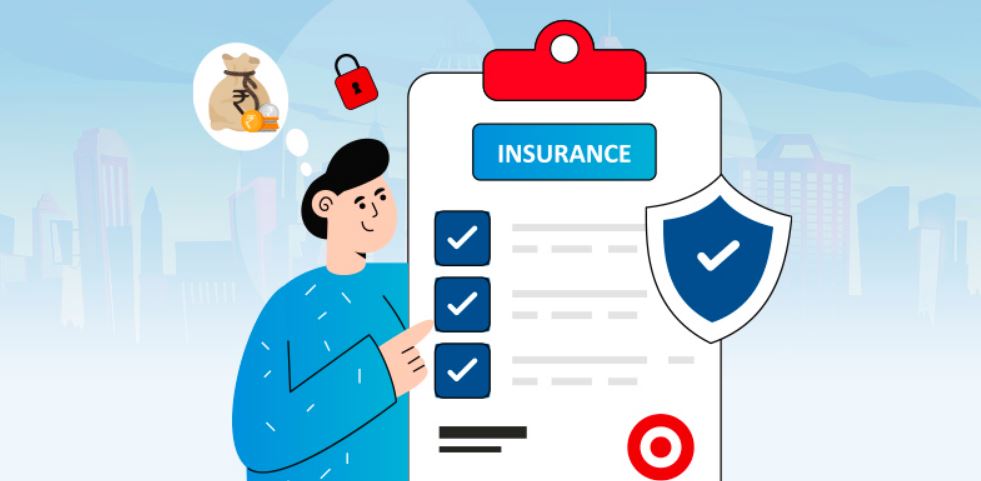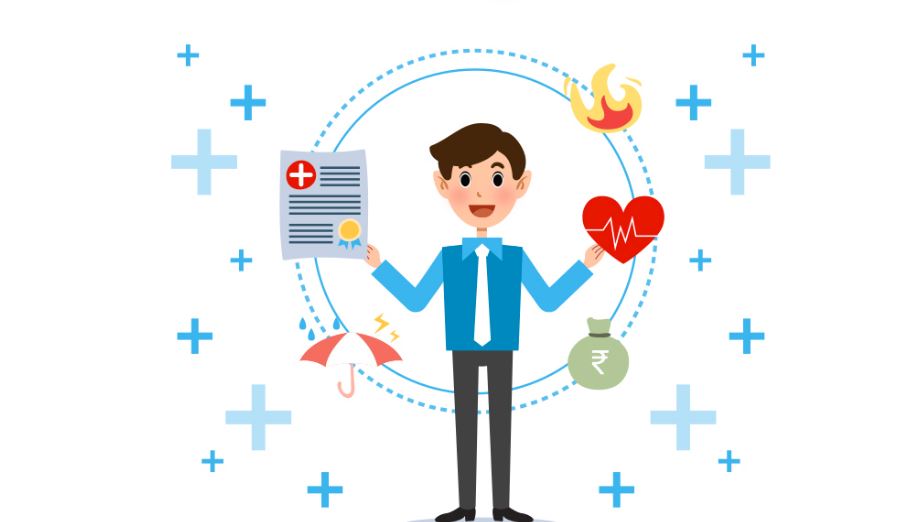Insurance
An insurance policy is a kind of financial instrument that offers protection against the possibility of damages or losses in the future. A contract, which is referred to as an insurance policy, is involved in this process. In this contract, a person or corporation (the policyholder) pays monthly payments to an insurance firm in return for protection against certain risks.

How Insurance Works ?
Policyholder: A person or organization that is responsible for purchasing the insurance coverage.
Premium: The sum that is paid to the insurance company by the policyholder, often on a monthly or yearly basis according to the contract.
Insurer: The business that is responsible for providing the insurance coverage.
Policy: The agreement that specifies the terms of the insurance policy, including the types of risks that are covered, the amount of coverage, and any limitations or exclusions that may apply.
Claim: An application submitted by the policyholder to the insurance provider in order to receive money or compensation in the event that a covered event takes place.
Deductible: The amount of money that the policyholder is responsible for paying out of their own pocket before the insurance company provides coverage for the remaining expenditures.
Types of Insurance
There is a wide range of insurance policies, each of which is intended to provide protection against a certain category of risks:

| 1. Health Insurance | Allows for the payment of medical bills in the event of accidents, illnesses, and other health-related difficulties. |
| 2. Life Insurance | Beneficiaries get a one-time payout in the form of a lump amount following the death of the policyholder. |
| 3. Auto Insurance | Covers injuries and damages to cars that are the consequence of incidents involving motor vehicles. |
| 4. Homeowners Insurance | Protects a house and its contents from being damaged by a variety of calamities, including but not limited to fire, theft, and natural catastrophes. |
| 5. Disability Insurance | In the event that the policyholder is unable to work due to a disability, this coverage will provide income replacement. |
| 6. Travel Insurance | Losses that are associated with travel, including as trip cancellations, lost baggage, and medical crises that occur when traveling overseas, are covered. |
| 7. Business Insurance | Provides protection for organizations against a variety of risks, such as those linked to employees, property damage, and legal responsibility. |
| 8. Pet Insurance | Covers the costs of veterinarian care for pets in the event that they get unwell or injured. |
Purpose of Insurance

The basic objective of insurance is to reduce the chance of facing financial losses. Individuals or organizations may protect themselves against the potentially large expenses of unanticipated disasters by paying a relatively little charge.
This includes both personal and commercial insurance. By passing the financial burden to the insurance company, which pools the premiums of many policyholders in order to pay out claims, insurance enables individuals to manage risk and reduce their exposure to uncertainty.
Importance of Insurance
Financial Security: The provision of insurance serves as a safety net, ensuring that people and organizations are able to recover from unforeseen occurrences without losing their financial stability.
Peace of Mind: A reduction in stress and uncertainty may be achieved by being aware of the many hazards against which you are protected.
Legal Requirement: For the purpose of ensuring that individuals are able to pay damages in the case of an accident, some forms of insurance, such as vehicle insurance, are legally required in various geographical locations.
Economic Stability: Insurance helps people and organizations recover from losses more rapidly, which in turn helps to sustain economic activity. This is one way that insurance contributes to economic stability.
Benefits of Insurance
A number of advantages may be gained by purchasing insurance, some of which are detailed in the following list:

Financial Safety for Family: They provide protection against the unpredictability of life and safeguard you against financial losses that may be incurred as a result of a variety of unusual occurrences in your life.
Wealth Creation Goals: ULIPs and other types of insurance plans provide you with chances for investment and assist you in accomplishing your most important financial objectives.
Safety of Financial Status: There are some occurrences, such as medical crises, that may have a big influence on the management of your personal cash flow. You will not be required to pay for such circumstances out of your own money if you have insurance.
Wealth Preservation: Certain types of life insurance policies, such as endowment and moneyback plans, are among the most secure investments that can be made over the long term. With these plans, you may protect your money from the effects of inflation and taxes over extended periods of time.
Wealth Distribution: The level of security that life insurance pension plans provide is something that is given by very few investment plans. It is possible to live to the age of 100 after retiring at the age of sixty. The only pension plans that can guarantee a consistent income for that time period are life insurance pension plans.
Read also:- What is High-Yield Savings Accounts, key features and open?

I am expert skilled in SEO content Creation. My name is Narinder Kumar. I have an experience in creating websites, (SEO) Content Creation , Articles Blogs & more. Currently I prepared a SEO Content in Eduction Purpose, Entertainment, Finance Management etc.

